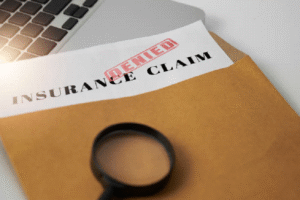Buying a car is exciting — whether it’s your first car or your tenth. But if you’re financing or leasing your vehicle, there’s an important piece of the puzzle you need to understand: the lienholder. You’ve probably seen this term on your car title or insurance paperwork and wondered, “What exactly is a lienholder, and why does it matter to me?”
Don’t worry — we’ve got you covered! In this guide, we’ll break down what a lienholder is, why they’re involved in your car ownership, and what happens once you finish paying off your vehicle. By the time you finish reading, you’ll feel confident navigating your car loan and insurance paperwork like a pro.
What Exactly Is a Lienholder?
Let’s start with the basics. A lienholder is usually a bank, credit union, finance company, or lender who loans you money to buy or lease your car. Because they helped you pay for the vehicle, they have a legal right to the car until you fully pay off your loan.
Think of it like this: the lienholder holds a “claim” or “legal interest” on your car. They don’t physically own the car like a dealer or seller, but they have a financial stake in it. This is called a lien.
The reason for this is simple — the lender wants to make sure they get their money back. So, until you finish paying for the vehicle, the lienholder technically owns part of the car. Once you clear your loan, that lien is removed, and the car is yours outright.

Why Is a Lienholder Important?
You might be wondering: “Okay, but why does this really matter to me?” Here are the key reasons:
1. Protects the Lender’s Investment
Since the lender is taking a risk by giving you a loan, they want to protect their money. The lien acts as a guarantee that if you stop making payments, they can take back the car to recover their loss. This process is called repossession.
2. Lienholder Shows Up on Your Car Title
The lienholder’s name appears on your vehicle’s title, which is the official document proving ownership. This shows that the lender has a claim on the car until the loan is fully paid.
3. Lienholder Must Be Listed on Your Insurance
To protect their investment, lienholders usually require you to have certain types of insurance on your vehicle. This ensures that if your car is damaged or stolen, there’s enough coverage to fix or replace it — so the lender doesn’t lose out.
4. Influences What Happens in Case of Accident or Theft
If your car is totaled in an accident or stolen, the lienholder will have a say in the insurance payout because they still own part of the vehicle. Usually, the insurance company pays the lienholder directly before you get any remaining balance.
How Does a Lienholder Affect Your Auto Insurance?
When you finance or lease a car, your lender will almost always require you to carry specific insurance coverage to protect the vehicle and their investment.
Required Insurance Types
-
Comprehensive Coverage: Covers damage from non-collision events like theft, fire, vandalism, or natural disasters.
-
Collision Coverage: Pays for repairs to your car if you’re in an accident with another vehicle or object.
Adding the Lienholder to Your Policy
You’ll also need to list your lienholder on your insurance policy as a loss payee or additional insured. This means if you make a claim, the insurance company pays the lienholder directly for the value of the vehicle.
Why Does This Matter?
If you don’t keep these coverages up to date or fail to pay your insurance premiums on time, your lienholder might consider it a breach of your loan agreement. This could lead to penalties or even repossession if the loan is also in default.

What Happens When You Pay Off Your Car Loan?
Great news! When you finish paying off your car loan, several important things happen that officially make you the full owner of your vehicle.
1. You Get a Lien Release Letter
This is an official document from your lender confirming that you’ve paid your loan in full and they no longer have a claim on your vehicle.
2. The Lienholder Is Removed from Your Title
Your car title will be updated to show that you own the car outright, with no lienholder listed.
3. You Can Update Your Insurance
Now that you own the vehicle fully, you can adjust your insurance coverage if you want. You’re no longer required to carry the comprehensive and collision coverage mandated by your lender, but remember that dropping these coverages can be risky.
What If You Stop Making Payments?
Let’s face it — sometimes life happens and payments get missed. If you stop paying your car loan, the lienholder has the legal right to repossess your vehicle. That means they can take the car back, often without warning, to sell it and recover the loan balance.
Repossession can seriously damage your credit and make it harder to get loans in the future. So it’s always best to communicate with your lender if you’re struggling. They may be able to work out a payment plan or deferment.
Tips for Managing Your Lienholder Relationship
Here are a few simple tips to keep your car loan and ownership smooth:
-
Always Make Payments on Time: This keeps your credit in good shape and avoids repossession.
-
Keep Your Insurance Current: Don’t let your policy lapse — your lienholder needs to be protected.
-
Understand Your Loan Agreement: Know the terms, fees, and what happens if you miss payments.
-
Request Lien Release Promptly: When you pay off the loan, ask for the lien release letter and updated title quickly.
-
Consider Refinancing if Needed: If payments are too high, refinancing might reduce your monthly cost.
Why Knowing About Lienholders Matters
Many car buyers get stuck at the financing stage because they don’t fully understand lienholders and how they affect ownership. But knowledge is power. When you understand what a lienholder is and how they fit into your auto loan and insurance, you’ll be more confident in your car-buying journey.
Whether you’re financing your first car or upgrading to a new model, this clarity helps you:
-
Avoid surprises with repossession or insurance claims
-
Know your rights and responsibilities as a borrower
-
Manage your vehicle paperwork like a pro
-
Protect your credit and investment
Final Thoughts
A lienholder might sound like a complicated legal term, but it’s really just the lender’s way of protecting the money they loaned you to buy your car. Until your loan is paid off, they have a legal claim on your vehicle, and that affects your car title and insurance.
Make sure you keep up with your loan and insurance payments to avoid trouble. And when the day comes that you pay off your car, celebrate! That’s when the lienholder steps away, and your car is truly all yours.
If you ever have questions about your car loan, title, or insurance, don’t hesitate to reach out to your lender or insurance provider. Staying informed is the best way to keep your car ownership experience smooth and worry-free.





